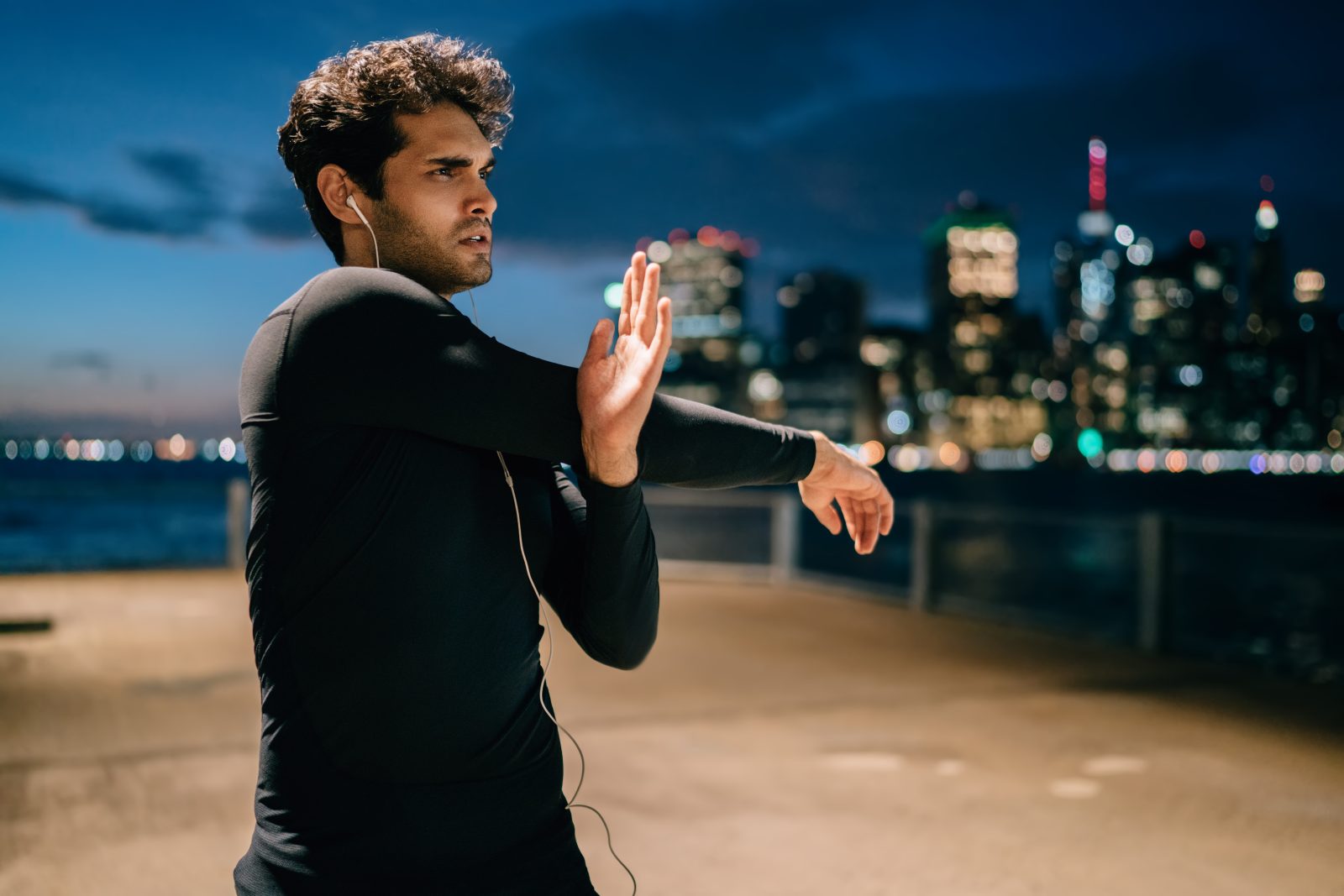In today’s fast-paced world, finding time for exercise can be challenging, and often, late evenings seem like the only available slot. However, a common concern arises: Does exercising late at night affect your sleep?
There are several evening workouts that can keep you up at night.
“Therogulation, a process that is key to good sleep because it messes with your core temperature, can be disrupted by doing intense workouts too close to bedtime’’ (that is, within an hour or so), says Thomas Kilkenny, DO, director of the Institute of Sleep Medicine at Staten Island University Hospital, in an interview with SELF.
It takes about two hours for your body temperature to begin to naturally drop before you go to sleep. The quality of your sleep may suffer if you don’t give yourself enough time to cool down after engaging in severe physical activity, such as weightlifting or cardiovascular exercise, that raises your core body temperature.
A small study published in 2014 in the European Journal of Applied Physiology reveals that engaging in these kinds of high-intensity activities before bed may make it more difficult to fall asleep to begin with. Intense exercise has effects that last even when you’re asleep. Intense exercise before bed can disrupt the rapid eye movement (REM) sleep stage, which is crucial for a number of processes, including emotional processing, memory consolidation, brain development, and more.
What really constitutes an ideal evening workout?
If you find that working out right before bed helps you wind down, there’s no need to stop doing so. If you’re not getting good sleep after your workouts, you might just need to adjust your routine.
If you prefer to exercise at night, the available data suggests that moderate-intensity exercise may be most beneficial. A 2022 review published in Nature and Science of Sleep suggests that this sort of exercise can help you get the restful sleep you need to repair and regenerate tissues all over your body. Since exercise can induce microscopic tears in muscle fibers, training in the evening may also improve post-exercise recovery, allowing for faster repair and more robust muscular growth.
Factors affecting how nighttime exercise affects sleep quality
Circadian Rhythm Factor
Our bodies operate on a natural 24-hour cycle called the circadian rhythm. This rhythm influences various physiological processes, including sleep-wake patterns. Disrupting this rhythm by engaging in intense physical activity late at night might interfere with our ability to wind down and fall asleep.
Sleep hormone dynamics
Melatonin, often referred to as the “sleep hormone,” plays a crucial role in signaling our bodies that it’s time to sleep. Exercising late at night can suppress melatonin production, potentially making it harder to fall asleep promptly.
Body temperature and sleep
Physical activity increases body temperature, which can be stimulating. Our body temperature naturally decreases as bedtime approaches, signaling the brain to initiate sleep. Exercising too close to bedtime might hinder this temperature drop, making it difficult to transition into a restful state.
Adrenaline and cortisol levels
Late-night workouts can lead to an increase in adrenaline and cortisol levels. These stress hormones prepare the body for action, which is hardly conducive to the relaxation needed for sleep. Managing these hormone levels by avoiding vigorous exercise before bedtime is crucial.
Individual Variations
It’s important to note that the effects of late-night exercise on sleep can vary from person to person. Some individuals might be less sensitive to the stimulating effects, while others could experience significant sleep disturbances.
The Importance of Wind-Down Time
Regardless of when you exercise, creating a wind-down routine is essential. Engaging in calming activities such as reading, meditation, or gentle stretches post-exercise can help counteract the potential sleep disruptions caused by late-night workouts.
Tips for nighttime exercisers
Maximizing sleep despite late workouts
- Prioritize low-intensity workouts: Opt for gentle exercises like yoga or light stretching to minimize the impact on your body’s arousal system.
- Create a time buffer: Finish exercise at least 2 hours before bedtime, allowing your body temperature to regulate.
- Stay hydrated: Proper hydration supports various bodily functions, including sleep regulation.
- Mindful nutrition: Avoid heavy meals and caffeine close to bedtime, as they can exacerbate sleep issues.
- Monitor sleep patterns: Pay attention to how your body responds to late-night workouts. Adjust if you notice sleep disturbances.
It doesn’t matter what time of day you choose to exercise, as long as you do it. It doesn’t matter if it’s late at night or not. After you finish your last set, make sure you have everything you need to fall asleep easily.
















Find Us on Socials